FX: an exchange-traded future?
Euromoney, June 2013 – The development of FX trading venues has been idiosyncratic, but can it follow other asset classes toward an exchange-traded future?
Originally a market driven by voice execution, more than 60% of the $5 trillion a day traded on the world’s foreign exchange market is now moved electronically, up from around 30% a decade ago.
The first generation of electronic FX trading venues emerged in the interbank market in the early 1990s, with the launch of Reuters and EBS’s platforms. Both have remained as a backbone of the electronic FX market, supported by dealing banks that rely on the two venues to manage their risk.
A second wave of multi-dealer FX platforms emerged in the late 1990s to provide connectivity between banks and clients. While many venues failed to gain traction, the survivors, such as FXall, Currenex and Hotspot FX, remain big trading venues.
There has been, however, a fresh wave of new FX venues launched over the last couple of years. Indeed, over the summer of 2012, Euromoney counted seven new FX trading venues launched in six weeks. Those new entrants include Par FX, FXSpotSream, FastMatch, Molten Markets, Gain GTX and LMAX Exchange to name just a few.
 |
| Javier Paz, senior analyst, Aite Group |
Javier Paz, senior analyst at the Aite Group consultancy, says there are a number of reasons for the surge in new FX venues into a competitive landscape that was fairly stable until recently.
First, he says, bank liquidity providers have become increasingly dissatisfied with the current group of FX venues because of what they perceive as practices that favour automated trading firms, and a sense that the trading infrastructure of existing platforms is outdated.
“Both of these may lead to potential opportunities for new venues,” says Paz.
Furthermore, the emergence of FX as an asset class has been a driving force behind a flood of new FX execution venues.
Both commodities and FX markets have benefitted from the lack of steady, profitable returns from traditional asset classes such as equities and fixed income.
This has driven fresh investor money into FX from market participants that demand greater execution speed and expect a greater degree of transparency than previously on offer in the currency market. They also have higher requirements for best execution.
Indeed, that can be seen in the increased uptake in transaction cost analysis in the FX market.
“New participants from non-FX markets have entered the space looking for faster, more streamlined, transparent FX trading venues similar to what they are used to in equities and futures markets,” says Paz.
The question is what the electronic trading venue of the future will look like.
Paz says while many new FX venues have emerged over the last few years – most of them touting increased transparency and describing themselves as next-generation trading platforms – only one, LMAX Exchange, has taken the concept of transparency seriously enough to register with the UK’s Financial Conduct Authority as a multilateral trading facility.
MTF status gives LMAX Exchange characteristics similar to an exchange, requiring pre-trade transparency with public distribution of price information and without discrimination against any market participants.
Indeed, LMAX Exchange has an open order book and does not give liquidity providers a ‘last look’ at prices they stream. This last look is common practice at some FX trading venues; it allows liquidity providers to reject the prices they quote, which can result in customers not executing deals at the price they see on their trading screens, particularly in fast, volatile markets.
David Mercer, chief executive at LMAX Exchange, says the idea of last look is an anathema to equities and futures traders.
 |
| David Mercer, chief executive, LMAX Exchange |
“They see prices on an exchange at which they can buy or sell,” he says. “They can’t imagine a situation where a price is rejected. Why would that happen in any product?”
That is not to say that there is still not discretionary pricing and discretionary liquidity pools for different clients at LMAX Exchange. It operates one venue in which liquidity providers quote prices to money managers, retail brokers and proprietary traders, and another venue where banks trade with each other in larger amounts.
As Mercer puts it, the firm has to maintain a pragmatic approach – banks after all still want to know broadly whom they are pricing.
“But what we are trying to do is level the playing field as much as we can within the existing ecosystem. It will keep evolving, and you could end up with an open order book, like in equities, for FX,” he says.
“If you are looking for Nirvana, if you want to know what I really think, FX should be one open book for everyone from the bureau de change to the guy trading $100 million,” Mercer adds. In other words, FX could eventually be like equities where, say, the price quoted for Vodafone shares on the London Stock Exchange is the same for a hedge fund manager and a retail client. Of course that is not to say that LMAX Exchange, or any of the other recent entrants into the FX trading venue sector, necessarily have a magic formula.
As Paz explains, just because new venues are built does not guarantee their success. He notes the history of electronic trading is, after all, littered with failed initiatives. FX is no exception.
“The evolutionary process within the global FX market is not a linear one,” says Paz.
Still, he adds: “Exchange-style trading, highlighted by increased transparency and no last look, is certainly a unique way to attract participation to the electronic FX market.”
Of course, the concept may not be universally welcomed, and might face initial scepticism from liquidity providers, but FX need only look to the equity market for proof of its viability.
Media Contacts
For further information please contact:
LMAX Exchange (London):
Barbara Pozdorovkina T: +44 20 3192 2510 E: [email protected]
About LMAX Exchange
LMAX Exchange Group is a dynamic, visionary and award-winning financial technology company. Recognised as one of the UK’s fastest growing technology firms, LMAX Exchange is leading the transformation of the global FX industry to transparent, fair, precise and consistent execution. Operating one global marketplace for trading FX, metals, indices and commodities, LMAX Exchange delivers open access, transparency and a level playing field to all market participants.
LMAX Exchange Group offers all clients the ability to trade on LMAX Exchange central limit order book, driven by streaming no ‘last look’ limit-order liquidity from top tier banks and non-bank financial institutions. Servicing funds, banks, brokerages, asset managers and proprietary trading firms, LMAX Exchange offers an anonymous, regulated, rules-based trading environment, order execution in strict price/time priority, and access to real-time streaming market and trade data, enabling all market participants to control execution quality and total trading costs.
Offering a comprehensive range of instruments and ultra-low latency execution, LMAX Exchange operates a global FX exchange infrastructure with matching engines in London, New York and Tokyo.
LMAX Exchange - a unique vision for global FX.
2024
Best Execution Venue – Finance Magnates Awardsmore
Best Cryptocurrency Exchange – Finance Magnates Awardsmore
The World’s Best Trading Firm for FX Liquidity – Euromoney Foreign Exchange Awardsmore
Application Performance – Speeds & Feeds – Azul Java Hero Awardmore
Exchange of the Year – Hedgeweek Global Digital Assets Awardsmore
2023
40 Top Innovators in Financial Markets – TabbFORUMmore
Best Execution Venue – Finance Magnates Awardsmore
Best Cryptocurrency Exchange – Finance Magnates Awardsmore
Best Crypto Trading Platform – Financial News Awardsmore
Best Exchange – Hedgeweek European Digital Assets Awardsmore
2022 - 2021
40 Top Innovators in Financial Markets – TabbFORUMmore
Best Exchange (Innovation) – Hedgeweek European Digital Assets Awardsmore
Best Crypto Trading Platform – Financial News Awardsmore
Best Execution Venue – Finance Magnates Awardsmore
Best Execution Venue – Global Forex Awards B2B more
Best Execution Venue – Finance Magnates Awardsmore
2020 - 2019
Best Cryptocurrency Exchange – Finance Magnates Awardsmore
Best Institutional Digital Asset Platform – Profit & Loss Readers' Choice Awardsmore
Crossover Award for Best Crypto/Fiat Initiative – Profit & Loss Readers' Choice Awardsmore
Best Anonymous Matching Platform – Profit & Loss Reader' Choice Awardsmore
Best Execution Venue – Finance Magnates Awardsmore
2018 - 2017
Best Crypto Solution Provider – Finance Magnates Awardsmore
Best Margin Sector Platform – Profit & Loss Readers' Choice Awardsmore
2016 - 2015
Best Trading & Execution Technology – HFM US Technology Awardsmore
Best FX Trading Venue (ECN/MTF) – WSL Awardsmore
Deloitte UK Technology Fast 50 – Deloitte more
Deloitte EMEA Technology Fast 500 – Deloittemore
Fastest Growing Tech Company in the UK – The Sunday Times Tech Track 100more
Recognised as a Tech City Future Fifty company – Tech City UK Future Fiftymore
2014 - 2013
Best Infrastructure/Technology Initiative – WSL Institutional Trading Awardsmore
Best Overall Testing Project – The European Software Testing Awardsmore
2012 - 2011
Best Trading System – Financial Sector Technology Awardsmore
Innovative Programming Framework – Oracle Duke's Choice Awardsmore
LMAX Exchange Group is the holding company of LMAX Limited and LMAX Broker Limited.
LMAX Exchange is a trading name of LMAX Limited, which operates a multilateral trading facility, authorised and regulated by the Financial Conduct Authority (firm reference number 509778) and is a company registered in England and Wales (number 6505809).
LMAX Global is a trading name of LMAX Broker Limited which is authorised and regulated by the Financial Conduct Authority (firm reference number 783200) and is a company registered in England and Wales (number 10819525).

 LMAX Group has been awarded Best Execution Venue for the fourth consecutive year by Finance Magnates at its annual London Summit Awards ceremony. The awards highlight leading participants in the industry as voted for by peers.
LMAX Group has been awarded Best Execution Venue for the fourth consecutive year by Finance Magnates at its annual London Summit Awards ceremony. The awards highlight leading participants in the industry as voted for by peers. LMAX Digital has been awarded Best Cryptocurrency Exchange for 2024 by Finance Magnates at its annual London Summit Awards ceremony. The awards highlight leading participants within the crypto space as voted for by industry peers.
LMAX Digital has been awarded Best Cryptocurrency Exchange for 2024 by Finance Magnates at its annual London Summit Awards ceremony. The awards highlight leading participants within the crypto space as voted for by industry peers. LMAX Exchange has been awarded The World’s Best Trading Firm for FX Liquidity at the Euromoney Foreign Exchange Awards 2024. Judged by a panel of global experts, the awards celebrate excellence and innovation in the global FX market.
LMAX Exchange has been awarded The World’s Best Trading Firm for FX Liquidity at the Euromoney Foreign Exchange Awards 2024. Judged by a panel of global experts, the awards celebrate excellence and innovation in the global FX market. 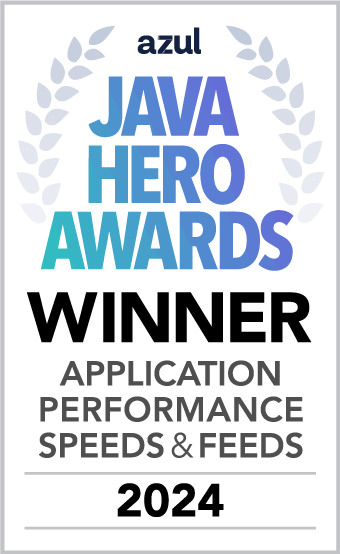 LMAX Group has been selected as the winner of the 2024 Azul Java Hero Award: Excellence in Application Performance – Speeds & Feeds. The awards recognise individuals and organisations that demand more, expect more, and get more from Java.
LMAX Group has been selected as the winner of the 2024 Azul Java Hero Award: Excellence in Application Performance – Speeds & Feeds. The awards recognise individuals and organisations that demand more, expect more, and get more from Java. 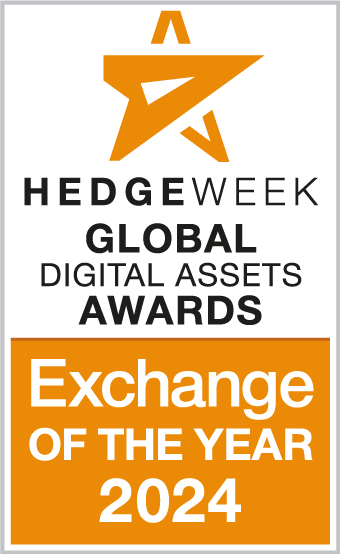 LMAX Digital has been awarded Exchange of the Year at the Hedgeweek Global Digital Assets Awards 2024. The awards recognise excellence in the fields of fund performance and service provision in the digital assets space. Voted on by participants in the financial services industry.
LMAX Digital has been awarded Exchange of the Year at the Hedgeweek Global Digital Assets Awards 2024. The awards recognise excellence in the fields of fund performance and service provision in the digital assets space. Voted on by participants in the financial services industry. 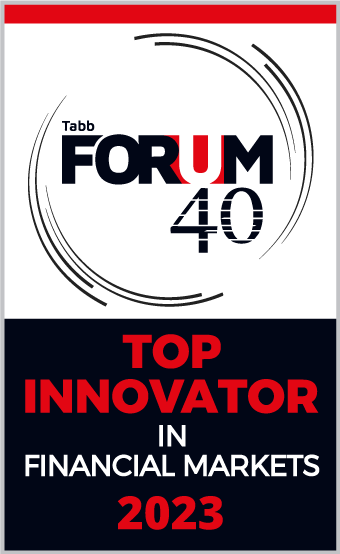 LMAX Group CEO, David Mercer has been named, for the second year running in the TabbFORUM 40 Top Innovators in Financial Markets. This second annual list recognises the achievements and influence of 40 outstanding disruptors and difference-makers having the greatest impact at the intersection of finance and technology.
LMAX Group CEO, David Mercer has been named, for the second year running in the TabbFORUM 40 Top Innovators in Financial Markets. This second annual list recognises the achievements and influence of 40 outstanding disruptors and difference-makers having the greatest impact at the intersection of finance and technology.  LMAX Group has been awarded Best Execution Venue for 2023 by Finance Magnates at its London Summit Awards ceremony. The awards spotlight and garner attention for leading participants that have excelled across key segments, and are voted by industry peers.
LMAX Group has been awarded Best Execution Venue for 2023 by Finance Magnates at its London Summit Awards ceremony. The awards spotlight and garner attention for leading participants that have excelled across key segments, and are voted by industry peers.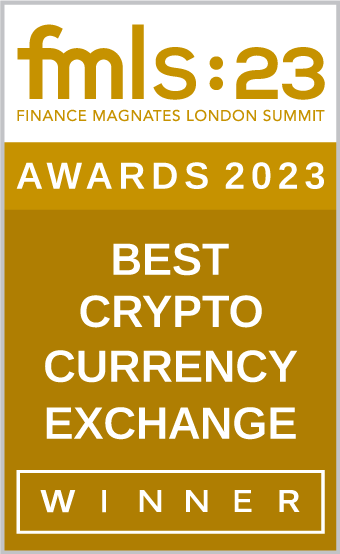 LMAX Digital has been awarded Best Cryptocurrency Exchange for 2023 by Finance Magnates at its London Summit Awards ceremony. The awards spotlight and garner attention for leading participants that have excelled across key segments, and are voted by industry peers.
LMAX Digital has been awarded Best Cryptocurrency Exchange for 2023 by Finance Magnates at its London Summit Awards ceremony. The awards spotlight and garner attention for leading participants that have excelled across key segments, and are voted by industry peers.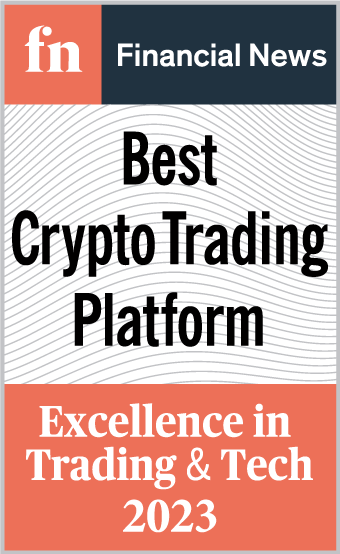 For the second year running, LMAX Digital has been awarded “Best Crypto Trading Platform” by leading industry publication, Financial News in its Excellence in Trading & Tech Awards. The awards are voted on by a panel of independent judges and senior editorial staff, and celebrate the companies and individuals that stand out for the strength of their businesses in Continental Europe and the UK.
For the second year running, LMAX Digital has been awarded “Best Crypto Trading Platform” by leading industry publication, Financial News in its Excellence in Trading & Tech Awards. The awards are voted on by a panel of independent judges and senior editorial staff, and celebrate the companies and individuals that stand out for the strength of their businesses in Continental Europe and the UK.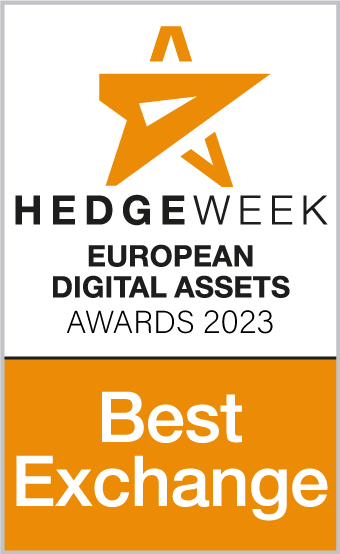 LMAX Digital has been awarded Best Exchange at the Hedgeweek European Digital Assets Awards. The awards provide a unique insight into the most highly-regarded and successful fund managers and service providers in the digital assets space. The awards are voted on by participants in the financial services industry.
LMAX Digital has been awarded Best Exchange at the Hedgeweek European Digital Assets Awards. The awards provide a unique insight into the most highly-regarded and successful fund managers and service providers in the digital assets space. The awards are voted on by participants in the financial services industry.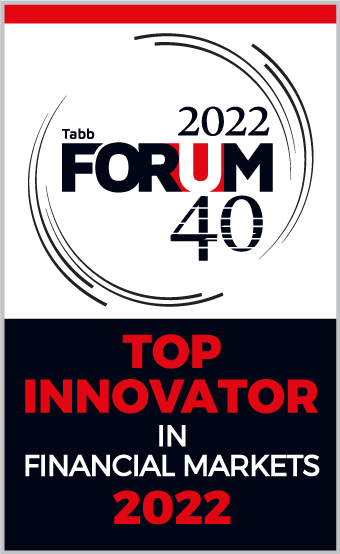 LMAX Group CEO, David Mercer has been named in the TabbFORUM 40 Top Innovators in Financial Markets, recognised as one of the technology-driven innovators, disruptors and difference-makers having the greatest impact in the sector.
LMAX Group CEO, David Mercer has been named in the TabbFORUM 40 Top Innovators in Financial Markets, recognised as one of the technology-driven innovators, disruptors and difference-makers having the greatest impact in the sector. -hedgweek.png) LMAX Digital has been awarded the Hedgeweek European Digital Assets Awards “Best Exchange (Innovation)”. The awards are granted to the top firms in their categories and announced at their annual awards ceremony.
LMAX Digital has been awarded the Hedgeweek European Digital Assets Awards “Best Exchange (Innovation)”. The awards are granted to the top firms in their categories and announced at their annual awards ceremony.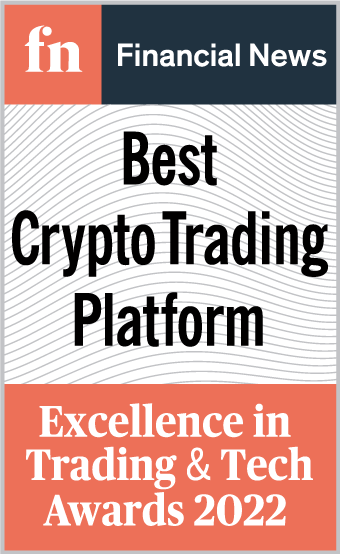 LMAX Digital has been awarded the 2022 Financial News Awards “Best Crypto Trading Platform”. The awards are presented to the best-performing providers in their category.
LMAX Digital has been awarded the 2022 Financial News Awards “Best Crypto Trading Platform”. The awards are presented to the best-performing providers in their category. LMAX Group has been awarded the Finance Magnates Award “Best Execution Venue” for 2022. The awards are presented to the best-performing firms in their categories and announced at the annual summit in London.
LMAX Group has been awarded the Finance Magnates Award “Best Execution Venue” for 2022. The awards are presented to the best-performing firms in their categories and announced at the annual summit in London. LMAX Group has been awarded the 2022 Global Forex Awards B2B “Best Execution Venue”. The awards are presented to the best-performing providers in their category as voted on by business customers, traders and investors globally.
LMAX Group has been awarded the 2022 Global Forex Awards B2B “Best Execution Venue”. The awards are presented to the best-performing providers in their category as voted on by business customers, traders and investors globally. LMAX Global has been awarded the Finance Magnates Award “Best Execution Venue” for 2021. The awards are granted to the top firms in their categories and announced at the annual London summit.
LMAX Global has been awarded the Finance Magnates Award “Best Execution Venue” for 2021. The awards are granted to the top firms in their categories and announced at the annual London summit.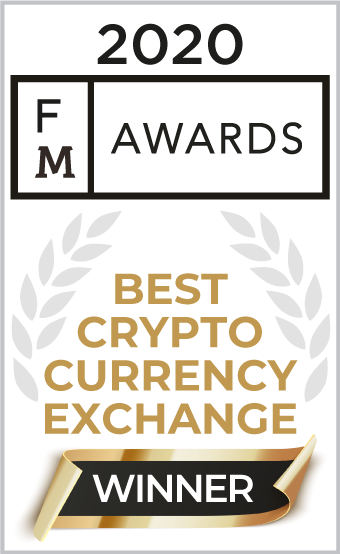 LMAX Digital has been awarded the Finance Magnates Awards “Best Cryptocurrency Exchange”. The awards are granted to the top firms in their categories and announced at the annual London summit.
LMAX Digital has been awarded the Finance Magnates Awards “Best Cryptocurrency Exchange”. The awards are granted to the top firms in their categories and announced at the annual London summit. LMAX Digital has been awarded The Profit & Loss Readers' Choice Awards “Institutional Digital Asset Platform”. These awards are voted on by the readers and recognise excellence within the foreign exchange industry throughout the previous year.
LMAX Digital has been awarded The Profit & Loss Readers' Choice Awards “Institutional Digital Asset Platform”. These awards are voted on by the readers and recognise excellence within the foreign exchange industry throughout the previous year. 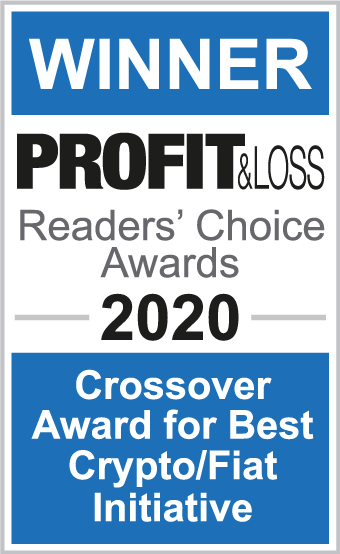 LMAX Group has been awarded The Profit & Loss Readers' Choice Awards “Crossover Award for Best Crypto/Fiat Initiative”. These awards are voted on by the readers and recognise excellence within the foreign exchange industry throughout the previous year.
LMAX Group has been awarded The Profit & Loss Readers' Choice Awards “Crossover Award for Best Crypto/Fiat Initiative”. These awards are voted on by the readers and recognise excellence within the foreign exchange industry throughout the previous year.  LMAX Group has been awarded The Profit & Loss Readers' Choice Awards “Best Anonymous Matching Platform”. These awards are voted on by the readers and recognise excellence within the foreign exchange industry throughout the previous year.
LMAX Group has been awarded The Profit & Loss Readers' Choice Awards “Best Anonymous Matching Platform”. These awards are voted on by the readers and recognise excellence within the foreign exchange industry throughout the previous year. LMAX Group has been awarded the Forex Magnates Awards “Best Execution Venue”. The awards are granted to the top firms in their categories and announced at the annual London summit.
LMAX Group has been awarded the Forex Magnates Awards “Best Execution Venue”. The awards are granted to the top firms in their categories and announced at the annual London summit.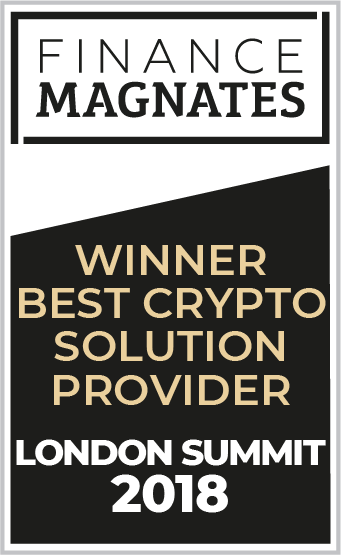 LMAX Exchange has been awarded the Finance Magnates Awards “Best Institutional Crypto Solution Provider”. The awards are granted to the top firms in their categories and announced at the annual London summit.
LMAX Exchange has been awarded the Finance Magnates Awards “Best Institutional Crypto Solution Provider”. The awards are granted to the top firms in their categories and announced at the annual London summit.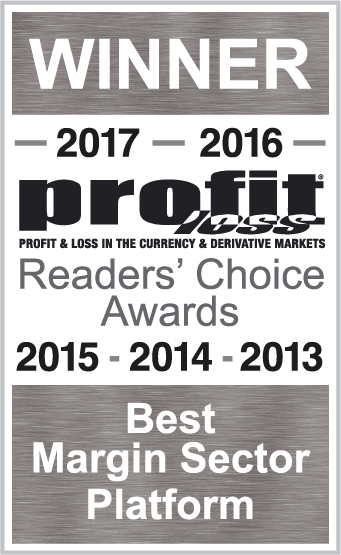 LMAX Group has been awarded The Profit & Loss Readers' Choice Awards “Best Margin Sector Platform” for five consecutive years. These awards are voted on by the readers and recognise excellence within the foreign exchange industry throughout the previous year.
LMAX Group has been awarded The Profit & Loss Readers' Choice Awards “Best Margin Sector Platform” for five consecutive years. These awards are voted on by the readers and recognise excellence within the foreign exchange industry throughout the previous year.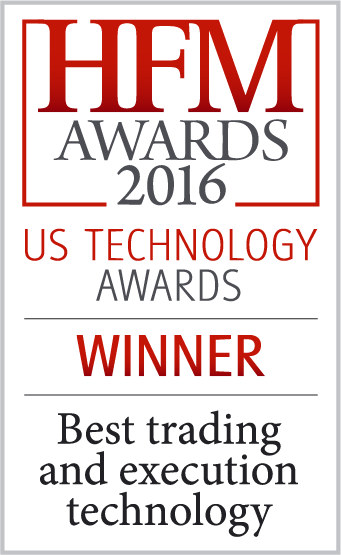 The HFM US Technology awards recognise hedge fund technology providers that have demonstrated exceptional customer service and innovative product development in the past 12 months.
The HFM US Technology awards recognise hedge fund technology providers that have demonstrated exceptional customer service and innovative product development in the past 12 months. 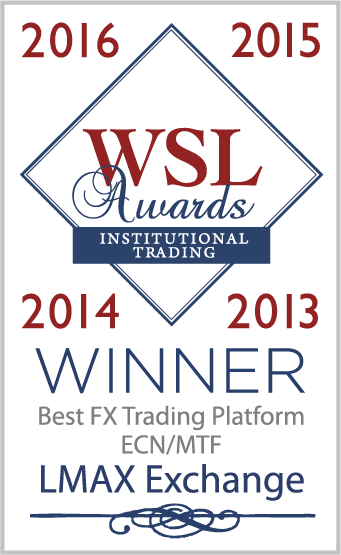 LMAX Group has been awarded The Fund Technology and WSL Awards “Best FX Trading Venue ECN/MTF”. The award honours excellence among providers to the institutional trading industry.
LMAX Group has been awarded The Fund Technology and WSL Awards “Best FX Trading Venue ECN/MTF”. The award honours excellence among providers to the institutional trading industry. 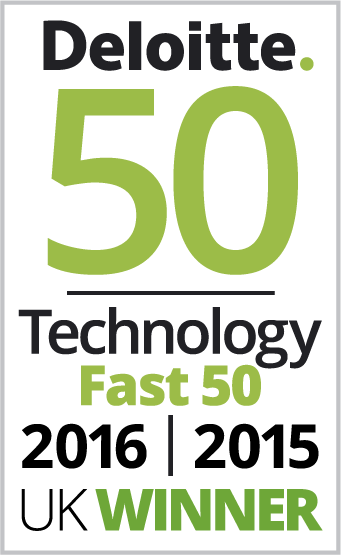 Deloitte UK Technology Fast 50 is a ranking of the 50 fastest-growing technology companies in the UK, based on percentage growth of fiscal year revenues over the last four years.
Deloitte UK Technology Fast 50 is a ranking of the 50 fastest-growing technology companies in the UK, based on percentage growth of fiscal year revenues over the last four years.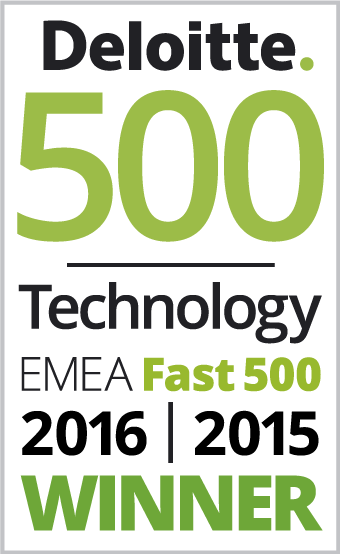 The Deloitte EMEA Technology Fast 500 pre-eminent technology awards program is a ranking of Europe, the Middle East, and Africa's fastest-growing technology companies based on percentage revenue growth over three years.
The Deloitte EMEA Technology Fast 500 pre-eminent technology awards program is a ranking of Europe, the Middle East, and Africa's fastest-growing technology companies based on percentage revenue growth over three years.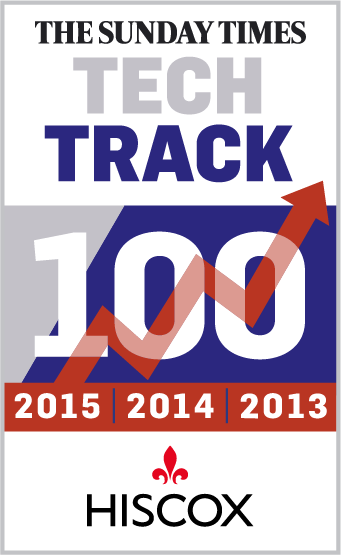 LMAX Group has been recognised amongst the UK's fastest growing technology firms for three consecutive years. Tech Track 100, compiled by Fast Track annually and published by the Sunday Times each September, lists Britain's 100 fastest-growing private tech companies based on sales growth over the last three years.
LMAX Group has been recognised amongst the UK's fastest growing technology firms for three consecutive years. Tech Track 100, compiled by Fast Track annually and published by the Sunday Times each September, lists Britain's 100 fastest-growing private tech companies based on sales growth over the last three years. LMAX Group is part of the Future Fifty programme, focused on accelerating the success of high-growth tech businesses.
LMAX Group is part of the Future Fifty programme, focused on accelerating the success of high-growth tech businesses.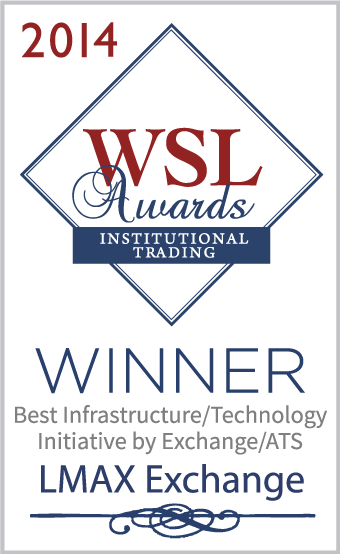 LMAX Group has been awarded The Wall Street Letter Institutional Trading Awards “Best Infrastructure/Technology Initiative” in 2014. WSL awards honour excellence among providers to the institutional trading industry.
LMAX Group has been awarded The Wall Street Letter Institutional Trading Awards “Best Infrastructure/Technology Initiative” in 2014. WSL awards honour excellence among providers to the institutional trading industry.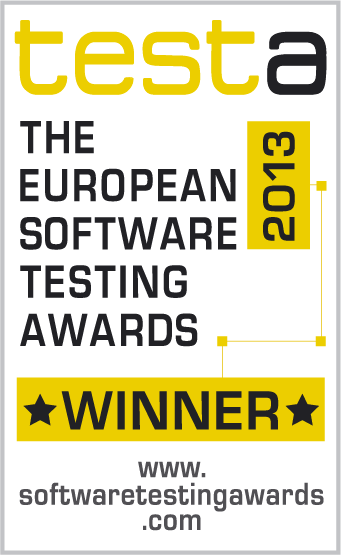 The European Software Testing Awards (TESTA) recognise excellence and innovation in the software testing and quality assurance across a variety of industries.
The European Software Testing Awards (TESTA) recognise excellence and innovation in the software testing and quality assurance across a variety of industries.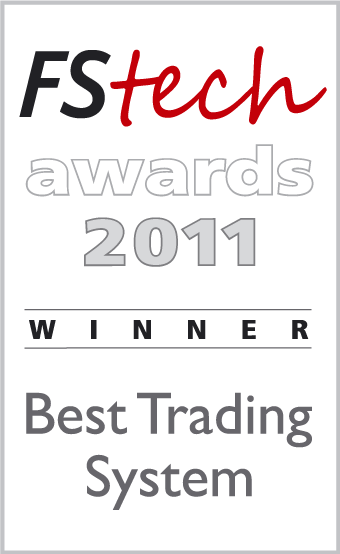 The FST Awards recognise excellence and innovation in the field of information technology within the UK and EMEA financial services sector.
The FST Awards recognise excellence and innovation in the field of information technology within the UK and EMEA financial services sector.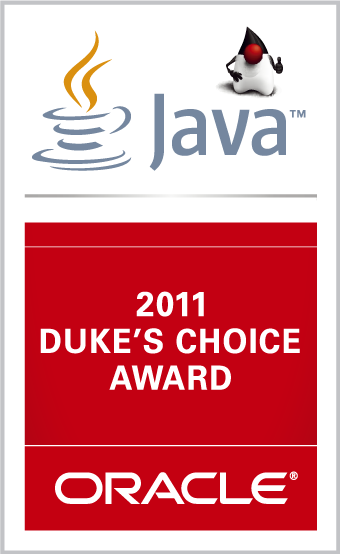 Oracle's Duke's Choice Awards celebrate extreme innovation in the world of Java technology and are granted to the most innovative projects using the Java platform.
Oracle's Duke's Choice Awards celebrate extreme innovation in the world of Java technology and are granted to the most innovative projects using the Java platform.